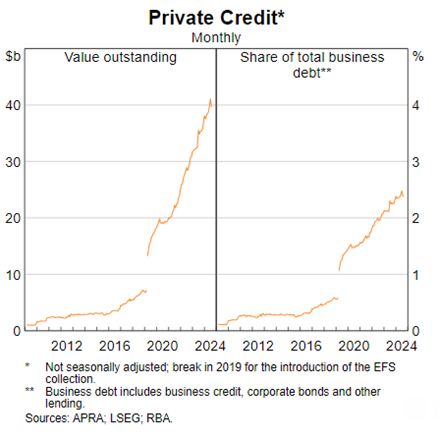Aussies losing on term deposit as rates plunge
Term deposit rates are falling sharply in Australia, with returns on three-year term deposits dropping to a two-year low in October as banks cut interest rates on savings accounts.
Further falls in deposit rates are likely as global interest rates fall, led by US interest rate cuts, and that could trigger greater investor demand for alternate fixed income investments.
Official data from the Reserve Bank of Australia reveals that the average advertised interest rate on three-year term deposits fell to 3.35% in October from 3.6% in September, and down from 4.0% at the beginning of 2024. The average advertised rate on across all maturities fell to 3.35% in October from 3.40% a month earlier.
The big banks are paying less on term deposits now than they were at the beginning of the year. If that trend continues, we could see average term deposit rates fall below 3% by the year’s end. If that happens, Australian retail investors and SMSFs risk their returns falling below the inflation rate if they stay in cash. In the current environment, savers may find it challenging to generate high returns on term deposits, with more investors exploring other higher yielding investments.
Income options for investors
For many investors, cash might seem like a safe haven investment. In reality, cash in the bank is not offering investors much of a safety buffer, with the real return on many term deposits now less than zero. For this reason alone, it may pay Australian investors to wind back their record levels of investment in cash and instead allocate some of that funding to higher yielding fixed-income investments such as private credit to reap a higher return on their money.
Yields on private credit investments are typically between 8% to 10%. According to the US Federal Reserve: “Over the past decade, the asset class, particularly direct lending, has generated higher returns than most other comparable asset classes.”
That is why Australian superannuation funds are increasing their allocations to private credit significantly, led by Australian Retirement Trust, Aware Super, AustralianSuper and Hostplus. They are being drawn by the stability of higher returns from private credit investments.
While term deposits offer a fixed return for a set period, the return on term deposits might not keep pace with inflation, potentially eroding the value of cash investments. In contrast, private credit investments have benefitted from higher interest rates given rates on such loans typically pay floating returns that are linked to short-term market interest rates.
A trend towards private credit
The Reserve Bank of Australia (RBA) recently estimated the private credit market in Australia is worth around $40 billion in outstanding debt, or around 2½ per cent of total business debt. The RBA says the local private credit market has grown more rapidly than overall business debt, as the charts below show, providing an alternative source of financing for businesses.

Private debt consists of privately originated corporate loans across a range of risk-return profiles. Unlike corporate bonds, these loans are not traded on the public markets.
For income seeking investors, the emerging private credit market is providing a great opportunity to elevated yields with periodic monthly oncome. Savvy investors now understand that this asset class can also offer appealing diversification opportunities beyond traditional investments like equities and bonds.
Investors need to assess their financial needs before investing in any new asset class. Private credit investments offer potential benefits such as higher returns, flexibility, and diversification, which can be very attractive compared to the low returns of cash investments. However, investors need to be aware that private credit involves some extra risk and is less liquid than cash, so it can be difficult to quickly convert these investments to money.
As with an investment in any asset class, selecting a manager who aligns with your specific investment needs and supported by a track record is essential.
5 topics

